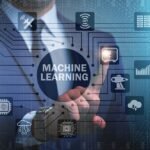OpenAI introduces fine-tuning for GPT-3.5 Turbo and GPT-4
OpenAI has unveiled a new capability that allows for the fine-tuning of its powerful language models, encompassing both GPT-3.5 Turbo and GPT-4. This development enables developers to customize these models according to their specific applications and deploy them at scale. The goal is to bridge the gap between AI capabilities and real-world use cases, ushering in a new era of highly specialized AI interactions.
Initial tests have yielded impressive outcomes, with a fine-tuned iteration of GPT-3.5 Turbo showcasing the ability to not only match but even surpass the capabilities of the foundational GPT-4 for certain focused tasks.
All data transmitted through the fine-tuning API remains the exclusive property of the customer, ensuring the confidentiality of sensitive information, which is not utilized to train other models.
The integration of fine-tuning has garnered substantial interest from developers and enterprises alike. Since the debut of GPT-3.5 Turbo, the demand for crafting custom models to create distinctive user experiences has witnessed a surge.
Fine-tuning opens up an array of possibilities across various applications, including:
- Enhanced steerability: Developers can fine-tune models to precisely follow instructions. For instance, a business seeking consistent responses in a specific language can ensure the model consistently replies in that language.
- Reliable output formatting: Maintaining uniform formatting of AI-generated responses is crucial, particularly for applications such as code completion or composing API calls. Fine-tuning refines the model’s ability to generate appropriately formatted responses, elevating the user experience.
- Custom tone: Fine-tuning empowers businesses to refine the tone of the model’s output to align with their brand’s voice. This guarantees consistent and on-brand communication style.
A notable advantage of the fine-tuned GPT-3.5 Turbo is its expanded token handling capacity. With the capability to manage 4,000 tokens – twice the capacity of previous fine-tuned models – developers can optimize their prompt sizes, leading to quicker API calls and cost savings.
To achieve optimal outcomes, fine-tuning can be combined with techniques like prompt engineering, information retrieval, and function calling. OpenAI is also planning to introduce support for fine-tuning with function calling and gpt-3.5-turbo-16k in the upcoming months.
The fine-tuning process involves several stages, including data preparation, file uploading, creating a fine-tuning job, and integrating the fine-tuned model into production. OpenAI is in the process of developing a user interface to simplify fine-tuning task management.
The pricing structure for fine-tuning comprises two components:
- Training: $0.008 per 1,000 Tokens
- Usage input: $0.012 per 1,000 Tokens
- Usage output: $0.016 per 1,000 Tokens
Additionally, OpenAI has announced updated GPT-3 models – babbage-002 and davinci-002 – which will replace existing models and enable further customization through fine-tuning.
These recent announcements underscore OpenAI’s commitment to crafting AI solutions that can be tailored to suit the unique requirements of developers and enterprises.


































